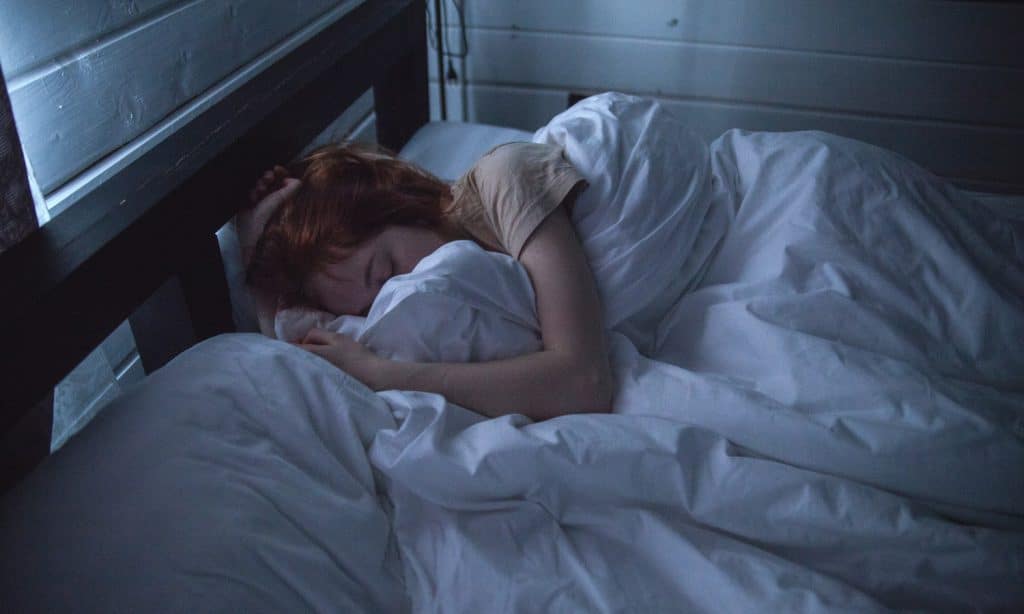By The Fresh Toast's Maria Loreto, provided exclusively to Benzinga Cannabis.
Anecdotal and scientific evidence suggests that marijuana can help people cope with acute insomnia.
Sleep is easily disrupted by the state of our mental health. It makes sense then that people are reporting increased issues with their sleep habits, having more vivid dreams, less restful sleep and more insomnia during the past couple of months.
People usually struggle with their sleep habits. According to Donn Posner, president of Sleepwell Associates an adjunct clinical associate professor at Stanford University School of Medicine, around 35% of people struggle with recurring bouts of insomnia. Now that people are coping with dangers posed to their health, the economy and social distancing pressures, the world’s current situation is a perfect recipe for sleep disorders.
When it comes to health workers, recent stats show that the pandemic has affected their sleep and their health dramatically. A survey conducted by Sleep Standards found that on average, healthcare workers are sleeping 5 hours a night. Forty-one percent of them are experiencing insomnia, 27% are dealing with nightmares, and only 21% of them report no sleep issues.
RELATED: COVID-19 May Trigger Diabetes: Can Marijuana Help?
Could marijuana help manage these symptoms of insomnia? Studies and anecdotal evidence suggests that it could.

Photo by Ivan Oboleninov via Pexels
A recent study from the University of Western Australia found that cannabis could provide an effective treatment for those who suffer from acute insomnia, specifically when the type of cannabis consumed is made up of a blend of THC and CBD. Patients treated with this kind of cannabis reported sleeping for more hours, falling asleep quicker, and getting back to sleep with more ease after waking up in the middle of the night.
“This study represents the most rigorous clinical trial ever undertaken to assess the therapeutic potential of medicinal cannabis to treat the symptoms of chronic insomnia,” lead researcher Peter Eastwood said in a statement. “The fact that ZLT-101 treatment achieved statistically significant, dose responsive improvements across a broad range of key insomnia indices is impressive, particularly given the relatively short two-week dosing window.”
RELATED: Probiotics And Cannabis: What Health Providers Should Know
Sleep is easily influenced by your lifestyle and it’s also one of the biggest influencers of your overall mood. This is stressful, since having poor sleep means you’ll be feeling grumpy and have higher odds of getting sick. But on a more positive note, by changing certain habits, you can also influence the way you sleep.
Instead of forcing yourself to sleep when your body doesn’t want to shut down, start off by implementing a few easy habits. Limit the amount of screen time you have and try to keep a regular schedule, working out a few times a week and eating as healthy as you can. Have a hit or two of cannabis before bed and see how your body responds. You might be surprised in a good way.
Photo by Andrea Piacquadio via Pexels
© 2025 Benzinga.com. Benzinga does not provide investment advice. All rights reserved.
Trade confidently with insights and alerts from analyst ratings, free reports and breaking news that affects the stocks you care about.
Cannabis is evolving – don’t get left behind!
Curious about what’s next for the industry and how to leverage California’s unique market?
Join top executives, policymakers, and investors at the Benzinga Cannabis Market Spotlight in Anaheim, CA, at the House of Blues on November 12. Dive deep into the latest strategies, investment trends, and brand insights that are shaping the future of cannabis!
Get your tickets now to secure your spot and avoid last-minute price hikes.